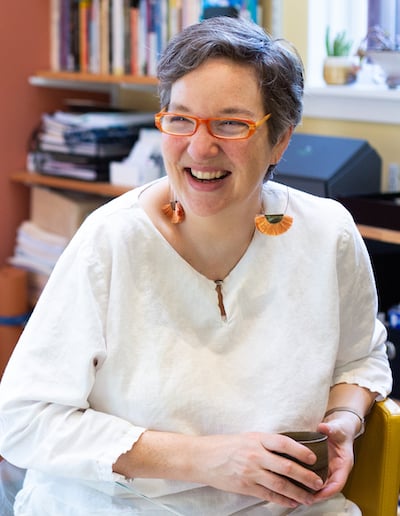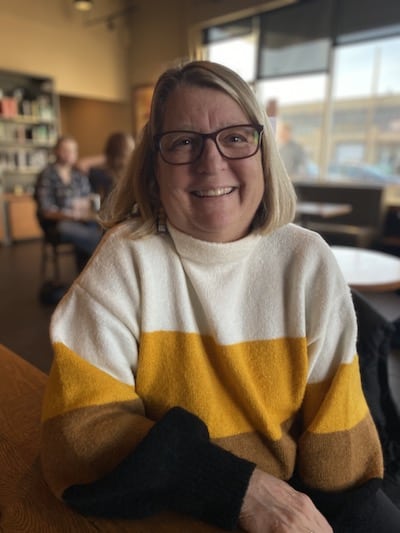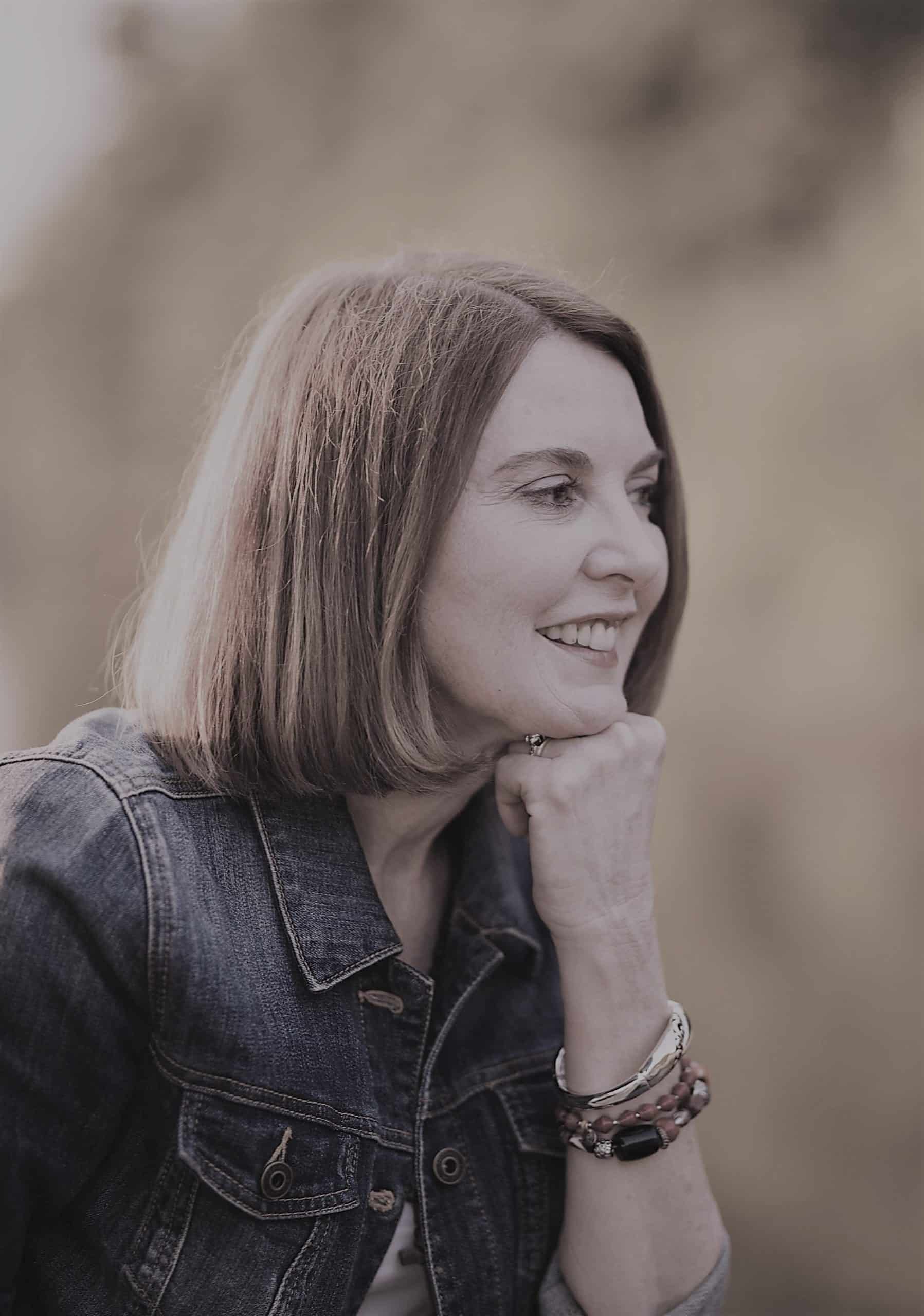Finding the Courage to Start – Again, Part 3
A four-part series on older adults starting new careers

In the third part of her series on second acts, Rev. Brenda Walker looks at starting again with journaling and action – and small steps. She shares wisdom from a career counselor and a psychologist and life coach. Part 1 of Finding the Courage to Start Again provided insights from a mental health counselor and life coach. Part 2 presented tips for starting again – lessons from an inventor and a writer.
In 2018, I retired from my role as pastor at Three Chopt Presbyterian in Richmond, Virginia, to care for my father. He passed away three weeks before my final sermon. I was devastated, adrift in my grief, having lost both parents within eight months of each other. I had also left the only professional role I had ever known. I was 59 and had served in ministry for 40 years, starting on weekends during my first year of college. I was overwhelmed by the transition ahead. I needed professional fulfillment from a new career; yet fear, uncertainty, and self-doubt raged inside me.
Knowing this experience is common among those of us with encore careers, I turn to career counselors for their advice. “It is normal to have these emotions when you are starting something new,” Bonnie Miller says. She is a licensed professional counselor at The BrownMiller Group, a career counseling firm. “The key is not to wait for them to go away but to understand that you can manage them so that you will feel less overwhelmed.”
Elaine Kiziah earned her Ph.D. in psychology, then turned her attention to counseling, career coaching, and consulting on ways to work effectively on projects that are fulfilling. “Fear is often a sign that what you’re doing matters to you – which is good! But these kinds of feelings can be overwhelming when they’re just swirling around in our heads.”
Get the fear out of our head and onto the page.
 Kiziah is also the founder of Joybook, an online learning community for people who want to use journaling to live a better life. “Taking time to write the feelings down can make them more manageable – and also allows you to see them with a bit more perspective. I recommend making a list of fears or questions that are coming up for you, then reading through your list and inviting your ‘Wise Self’ to respond – offering you advice and encouragement.”
Kiziah is also the founder of Joybook, an online learning community for people who want to use journaling to live a better life. “Taking time to write the feelings down can make them more manageable – and also allows you to see them with a bit more perspective. I recommend making a list of fears or questions that are coming up for you, then reading through your list and inviting your ‘Wise Self’ to respond – offering you advice and encouragement.”
Ms. Kiziah’s guidance resonates with my experience. While I was desperate to find my professional footing, I sought direction through journaling. When I was in the 7th grade, my study hall teacher, Ms. Charlton, looked over her round, gold-rimmed glasses at us from her desk, the dusty blackboard stretched across the wall behind her back. She held up a small bound notebook and bellowed, “Get yourself a diary and start writing in it every day. You will never regret it.” That day, Nov. 18, 1971, I started journaling and have continued the practice for almost 50 years.
In the early days of my career transition, I explored my identity by the simple exercise of jotting “I am,” then finishing the sentence with everything I could think of to write down. I am “a retired pastor.” Eventually, I wrote, “I, Brenda, am a writer,” claiming the identity I had held within since I was 8 years old.
Kiziah used journaling to guide her own career transition. “I’ve made some pretty significant changes with my work over the past five years – to bring it in better alignment with who I am and what I love most.
“Journaling helped in four main ways:
- Listening more closely to myself so I can get clear on how I feel about things.
- Learning from my highs and lows with my work – for instance, analyzing peak experiences (times when I felt happy, fulfilled, and at my best) to uncover the key ingredients.
- Dreaming about ways to bring more of those ingredients into my work and life.
- And when the journey gets hard, it’s how I troubleshoot, encourage myself, and remind myself of why it all matters.”
Gain clarity through action.

“I often talk to my clients about the clarifying value of action and warn them against making premature decisions without enough information,” Miller shares. “For example, you don’t have to decide today – just by thinking about it – whether you want to change jobs or even change careers. All you need to decide is whether you want to apply for a job. If you do apply and if you are lucky enough to get an interview, you’ll have learned so much more! You’ll know who you will be working with and for, what it looks like, what it feels like, how much money you’ll make, what benefits might be available to you, and how you’ll spend your days. Then, and really only then, will you be in a good place to assess the risk.”
I first explored becoming a published author by attending the James River Writers Conference. I was nervous, sweating under my armpits while navigating the convention center. I’d been to more church conferences than anyone should attend in one lifetime, but this was an unfamiliar environment, a gathering of writers with expertise, some with multiple books to their names. A familiar social awkwardness came over me. I was 13 again, fearing the cool kids would have nothing to do with me. Furthermore, I was still adjusting to having one usable eye due to a retinal detachment two years prior. In new spaces my depth perception and sense of space were off and I was prone to bumping into the person on my right in crowded spaces. It was disorienting. But I made it through the day. I learned the risks and the opportunities in publishing. That small action of showing up to learn, despite the obstacles, launched my encore career.
“Take the edge off your fear by telling yourself that if, with more information, it doesn’t seem worth the risk, you’ll not do it,” Miller advises. “But perhaps you owe it to yourself to at least find out.”
Take small steps.
Ms. Miller reminds us that small steps aren’t just for reflection and discernment. “It is always helpful to frame whatever action you take in terms of the smallest steps possible, because large leaps will increase your anxiety, as well they should. The next step is not to change careers; it is merely going online to look at what’s available. Or researching opportunities for training in an area of interest. Or updating your résumé.”
While at the James River Writers Conference, I discovered my next small step. I bought The Halfway House for Writers by Valley Haggard, and through it I learned about classes at Life in 10 Minutes. In the classroom space on Cary Street, I began the free writes that would eventually become my memoir. The class structure naturally broke the writing process into manageable chunks.
For those who must discover their own process, Miller advises taking one day at a time. “A good rule of thumb is to have your ‘to-do list’ include things that are so small that they can be accomplished in a day.”
Day by day, we build our futures.
In my final installment of Finding the Courage to Start, I’ll share advice from three second-career authors whose work is featured in the Spring edition of Virginia Writers Club Journal.
The portraits in starting again with journaling and action
Elaine Kiziah is a psychologist turned life coach and the founder of Joybook, an online learning community for people who want to use journaling to live a better life.
Bonnie Miller is Licensed Professional Counselor at The BrownMiller Group, a career counseling firm.
 Rev. Dr. Brenda Walker is the author of the forthcoming Martine: A Memoir, which tells of her transformation into a trans ally as she discovers that her oldest sibling, who died in 1982 under mysterious circumstances, was transgender. Share your thoughts on second careers or connect with Brenda on her website.
Rev. Dr. Brenda Walker is the author of the forthcoming Martine: A Memoir, which tells of her transformation into a trans ally as she discovers that her oldest sibling, who died in 1982 under mysterious circumstances, was transgender. Share your thoughts on second careers or connect with Brenda on her website.


